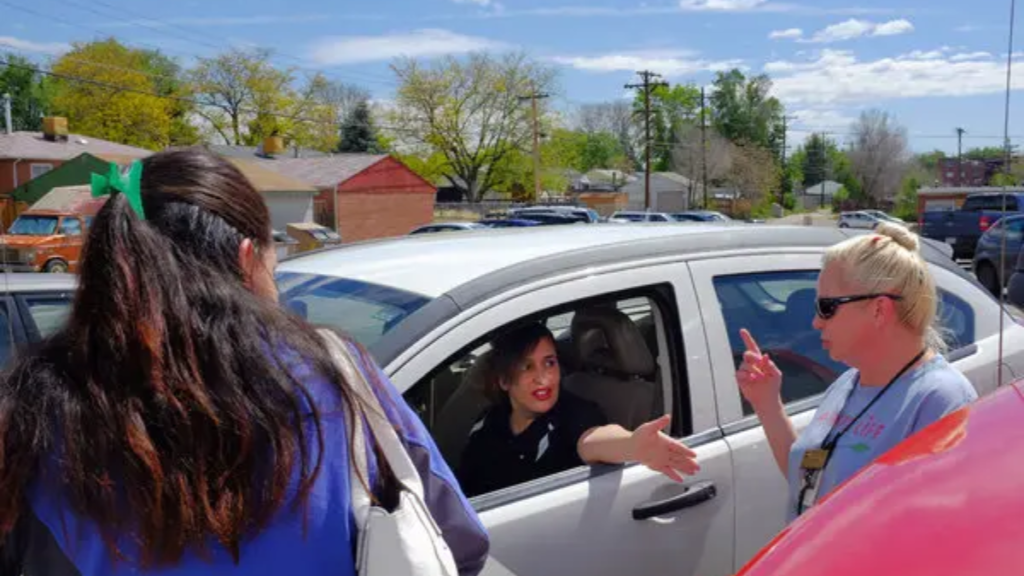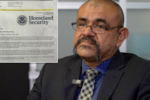Several Republican-led states, spearheaded by Florida, are aggressively moving to nullify the validity of driver’s licenses issued to undocumented immigrants. The actions, part of a broader effort to strengthen immigration enforcement at the state level, are reigniting a nationwide debate over state rights, immigration policy, and the legal status of non-citizens on American roads.
Florida’s Law: A Template for Red-State Legislation
In 2023, Florida passed legislation declaring certain out-of-state licenses invalid if they were issued to undocumented immigrants. The law authorizes law enforcement to penalize drivers from states like California, Colorado, and New York that offer licenses regardless of immigration status.
Governor Ron DeSantis, who has built much of his political platform around border security and immigration enforcement, framed the policy as a matter of state sovereignty.
“We will not recognize the legitimacy of illegal entry. Florida must stand up for the rule of law,” DeSantis said when signing the bill.
The law does not affect all out-of-state licenses—only those marked or categorized as issued to undocumented individuals. This legal distinction, however, creates confusion for immigrants living legally in one state but traveling through or relocating to another.
A Spreading Trend Among Republican States
Inspired by Florida’s approach, other GOP-controlled legislatures—including those in Texas, Iowa, and Georgia—are introducing similar bills. The core objective is to prevent undocumented immigrants from using licenses obtained in more permissive states to drive or access services in stricter jurisdictions.
In Texas, lawmakers are reviewing proposals that would empower local police to question the validity of a driver’s license based on its issuing state. A similar bill in Iowa would ban any business or government agency from recognizing these licenses as valid identification.
“We’re simply making sure that the law means something,” said Iowa State Senator Jason Schultz. “If another state wants to hand out privileges to those who break federal law, that doesn’t mean we have to follow.”
Civil Rights Concerns and Backlash
Immigration and civil rights groups have sounded the alarm about these legislative efforts. They argue that refusing to recognize legal documents issued by other states could lead to racial profiling and unjust treatment of immigrants—regardless of their legal status.
Critics also contend that these laws ignore the practical and public safety benefits of allowing undocumented immigrants to drive legally. In states where such policies are in place, all drivers must pass tests, maintain insurance, and register vehicles—ensuring safer roadways.
“These crackdowns don’t improve public safety—they make it worse,” said Felicia Escobar Carrillo of the Immigration Hub. “When states take away legal means for undocumented people to drive, they’re forcing more unlicensed, uninsured drivers onto the road.”
A 2017 study by the AAA Foundation for Traffic Safety found that unlicensed drivers are five times more likely to be involved in fatal crashes than licensed drivers. States like California and Illinois implemented immigrant licensing programs in part to reduce hit-and-run accidents and promote accountability on the roads.

Legal Questions: Can States Refuse to Recognize Licenses?
Legal scholars are divided over whether these policies violate the U.S. Constitution’s Full Faith and Credit Clause, which generally requires states to honor each other’s public acts and records. However, driver’s licenses fall into a gray area, as each state maintains its own requirements and discretion over recognition.
Some experts believe that if challenged in court, these laws could survive—especially if framed as issues of public safety. Others believe the legal foundation is shaky.
“This is ripe for litigation,” said University of Miami law professor Ricardo Sol. “States can regulate driving, but they cannot selectively ignore lawful documentation from other jurisdictions without a compelling reason.”
Several civil rights groups, including the ACLU and National Immigration Law Center, have hinted at potential lawsuits to stop what they consider unconstitutional discrimination.
The Political Landscape and 2024 Elections
These efforts are not just about policy—they are also political signals. With immigration dominating the national conversation, Republican leaders are using state-level powers to demonstrate their commitment to stricter enforcement.
For example, Florida’s law was signed months before DeSantis launched his 2024 presidential bid, and many of the proposals in other states are expected to advance quickly as the election year heats up.
Democrats have condemned the laws as politically motivated and dangerous. They argue that denying driving privileges or recognition of licenses is a cruel way to score political points while putting families and communities at risk.
Conclusion
As the divide deepens between blue and red states on immigration policy, the treatment of undocumented immigrants behind the wheel has emerged as a new legal battleground. While some see these moves as a necessary assertion of sovereignty and law enforcement, others view them as discriminatory and counterproductive.
The outcome may ultimately rest with the courts, but the controversy has already exposed stark differences in how states interpret fairness, legality, and public safety. In the meantime, immigrants caught between jurisdictions are left navigating a confusing and potentially dangerous road.
For more in-depth information about immigrant driver’s license laws, visit the National Immigration Law Center.
Disclaimer – Our team has carefully fact-checked this article to make sure it’s accurate and free from any misinformation. We’re dedicated to keeping our content honest and reliable for our readers.








